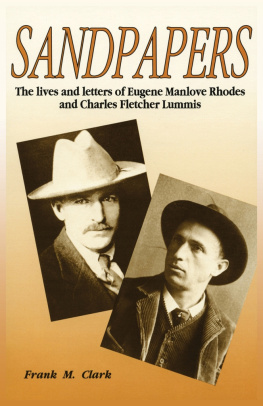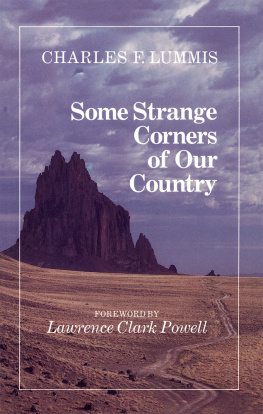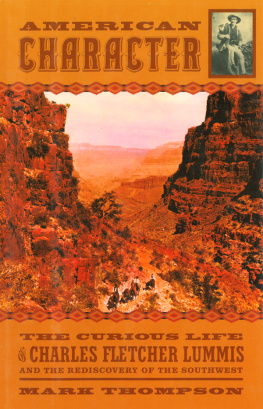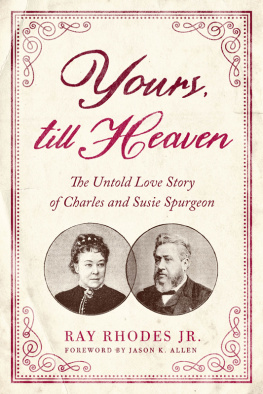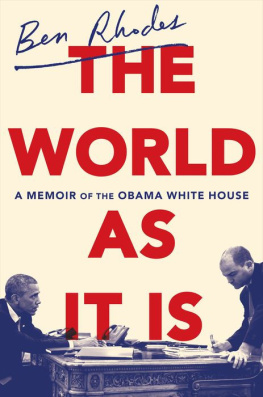

1994 by Frank M. Clark. All rights reserved
No part of this book may be reproduced in any form or by any electronic or mechanical means including information storage and retrieval systems, without permission in writing from the publisher, except by a reviewer who may quote brief passages in a review.
First Edition
Printed in the United States of America
Library of Congress Cataloging in Publication Data:
Clark, Frank M., 1924
Sandpapers: the lives and letters of Eugene Manlove Rhodes and Charles Fletcher Lummis / by Frank M. Clark: foreword by Keith Lummis.
P. cm.
Includes index.
ISBN 0-86534-211-3: $14.95
ISBN 9-78161139-942-4 (e-book)
1. Rhodes, Eugene Manlove, 1869-1934. 2. Lummis, Charlezs Fletcher, 1859-1928. 3. Authors, American-20th centuryBiography. 4. Authors, American19th centuryBiography. 5. Authors, AmericanWest (U.S.)Biography. 6. EditorsUnited StatesBiography. 7. West (U.S.)Intellectual life. I. Title.
PS3535.H68Z58 1994
818' .409dc20
[B]
93-33738
CIP
Published by Sunstone Press
Post Office Box 2321
Santa Fe, NM 87504-2321 / USA
(505) 988-4418 orders only (800) 243-5644
FAX (505) 988-1025
TABLE OF CONTENTS
Chapter One
The Forming Years: The Setting, The Man
Chapter Two
With Pen in Hand
Chapter Three
Rangeland Romances?
Chapter Four
Domesticity, New Mexico Style
Chapter Five
Apalachin Confinement
Chapter Six
Lost in Los Angeles
Chapter Seven
Trek to the Final Exile
Chapter Eight
By the Shores of the Sundown Sea
Chapter Nine
The Arrival
Chapter Ten
Birth of a Stormy Petrel
Chapter Eleven
Lummis the Printer
Chapter Twelve
The Trek
Chapter Thirteen
City Editorand Scout
Chapter Fourteen
New Mexico Interlude
Chapter Fifteen
At the Editors Desk Again
Chapter Sixteen
El Alisal: The Magnificent Dream
Chapter Seventeen
The Southwest Museum
Chapter Eighteen
Always Your Friend Letters from Lummis
Chapter Nineteen
The Sunset Years
Chapter Twenty
Wherein, We Conclude
PREFACE
O n a sunny warm spring morning ten years ago, I sat on the late W. H. Hutchinsons patio sipping his coffee and bending his ear on my favorite topic, Eugene Manlove Rhodes.
Hutch was, as usual, the soul of patience as he listened to my ramblings. Hed heard it all before. When I expressed my great desire to examine the materials he had donated to the Henry E. Huntington Library in San Marino; material he had gathered during his research for his biography of Rhodes, A Bar Cross Man, he perked up and growled, Why dont you go down and look at them. Tell them you want to write a book on Gene from a different slant.
When our visit was at an end, I thanked Hutch for taking the time to see me. He allowed, with a perfectly straight face, that he felt it was his Christian duty.
Getting into the archives at Huntington Library was not that simple. It took a letter from Hutch and one from another friend who was a published writer to convince them of my sincerity, and a few long distance phone calls before I was allowed past the guards and ushered into a large hushed room.
There I was presented with six dusty green boxes tied with twine. To me it was like Christmas. I opened each one eagerly to go through time faded letters, newspaper clippings, old photographs and Hutchs notes hed written thirty years earlier.
Sitting there going through Hutchs files, I resolved, really for the first time, that I would write about Gene Rhodes. I took notes for a week, thanked the librarian, and came home to take ten years to do what I should have been able to do in ten months. In the years that followed I made three more trips to Huntington Library to gain more information.
The many interruptions that plagued me created a sincere sympathy for Genes distractibility.
A few years, and several visits with Hutch later, he mentioned that Charles Fletcher Lummis son, Keith Lummis, lived in San Francisco and might be willing to talk to me about Gene and his connection with Lummis. By that time I was becoming more aware of Charles Lummis influence on Gene and his writing.
And so it came about that one morning I took courage and called Keith Lummis number. A rumbling but not unkind voice answered. After a stammered self introduction, I invited myself to come and talk to him about Gene and his father. To my surprise he was perfectly agreeable. We set a time and date and a few days later I found myself knocking on a door at the top of a long flight of stairs. I was admitted into the home of Keith Lummis and his lovely wife, Hazel.
I sat on the edge of the couch in their living room for two hours and listened spellbound while Keith talked about his famous father, his sister Turbes and the book that he and Turbes had started, and he had finished following her death. He willingly shared with me letters that Gene had written to Turbes while he was an exile in Los Angeles, which gave me a rare insight into an important part of Genes life.
By this time I was becoming torn between the desire to write about Gene Rhodes and to write about Charles Lummis.
The summer following my first visit with Keith, I went back to Southern California to spend research time in the Braun Library at the Southwest Museum. There I went through the extensive file of Lummis correspondences with Gene Rhodes, Mary Austin, Maynard Dixon and other artists to whom Charles had written. I found such a strong link between Eugene Manlove Rhodes and Charles Fletcher Lummis in their correspondence that I decided to write of both, including enough of their correspondence to allow the reader to experience for himself the warm bond of friendship that existed between these two noble Southwesterners.
Frank M. Clark Tehama, California
FOREWORD
T wo good men, Lummis and Rhodes. They loved a good fight as much as a good laugh and they gave their strength to support their friends and confound their enemies. In each was a shred of the chivalric knight questing the modern equivalent of the dragon. Both were armed with pen and fist. Lummis favored the former, Rhodes, the latter. Both adored the fair maiden, one from afar, the other more intimately.
One difference was that Gene Rhodes could invent a plot, create characters for it and pull the necessary strings for them to carry it out. Charles F. Lummis could not do this. He knew it and was unhappy about it. He knew Gene could and admired him for it.
Their similar temperaments developed in quite different backgrounds. Lummis, the preachers son, was born into a scholarly and ecclesiastical atmosphere. Rhodes grew up on the frontier and only through his mothers reading was he introduced to the world of literature. Yet both had similar lovesbooks, the rough life of the frontier and the frontier mores. While Gene was breaking horses for $25 a month, Charlie cut out a horse from a herd of mustangs and broke it for his own riding. Instinctively they had the same enemies; falsehood, pretense, arrogance, tyranny. They lent their support to those they felt unjustly accused or abused. Among the many that Lummis unhorsed with his trusty pen were a professor of an eastern university, a clergyman and the Century Dictionary. Gene used the same potent weapon in defense of a long dead Spanish pioneer, a valiant contemporary lawman and he joined Joaquin Miller and Mary Austin in a series of poems published in Lummis

